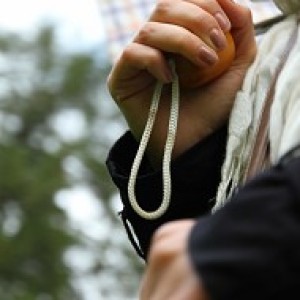Dance, Dance or We Are Lost (P. Bausch)
My solo performance at university is devised around dance and more particularly my own relationship with dance throughout my life.
Last night my dear friend and I had a hearty debate on the sexuality portrayed in a pole dancer and a flamenco dancer.
I'm a good debater apparently! Yet, with the help of some wine, and the fact we were debating a personal subject for myself, I did get defensive and emotional. I wasn't comfortable with the idea that my flamenco dancing could being likened to that of a pole dancer who, for example, worked at Fantasty Palace.
In hindsight, I would be a crap politician. First of all I got a bit narrow minded and seconldly was like 'boohoo, why don't you just agree with me?!' (hey, I'd been drinking ok? ;p )
So I've thought about it more carefully now.
I've been learning flamenco for 6 1/2 years. I'm very proud of it. I think it does contain sexuality, but it's not the same sexuality as a pole dancer. It has a power and an independence that demands respect (I've also heard that it is rude for the musicians to watch the dancer's legs or feet, but will need to clarify this later). It also comes from a deep and rooted history in Andulacia and some scholars claim it can even be traced back to 5th century belly dancing (used as a worshipping ritual).
Well, I agree and disagree with my friend. Dance can contain elements of sexuality. However, I believe our definitions of sexuality are entirely different.
In this contemporary and capitalist era, where sex sells and naked ladies appear without question on page 3, it may be easy to forget that sexuality can actually mean a powerful and spiritual connection with the universe and the female, the life bearer and giver. Just look into the history of belly dancing or the Bacchic rituals of ancient Greece. There's a reason we call it called Mother Earth.
- 0
- 0
- Sony DSC-W210
- 1/13
- f/2.8
- 5mm
- 400

Comments
Sign in or get an account to comment.


